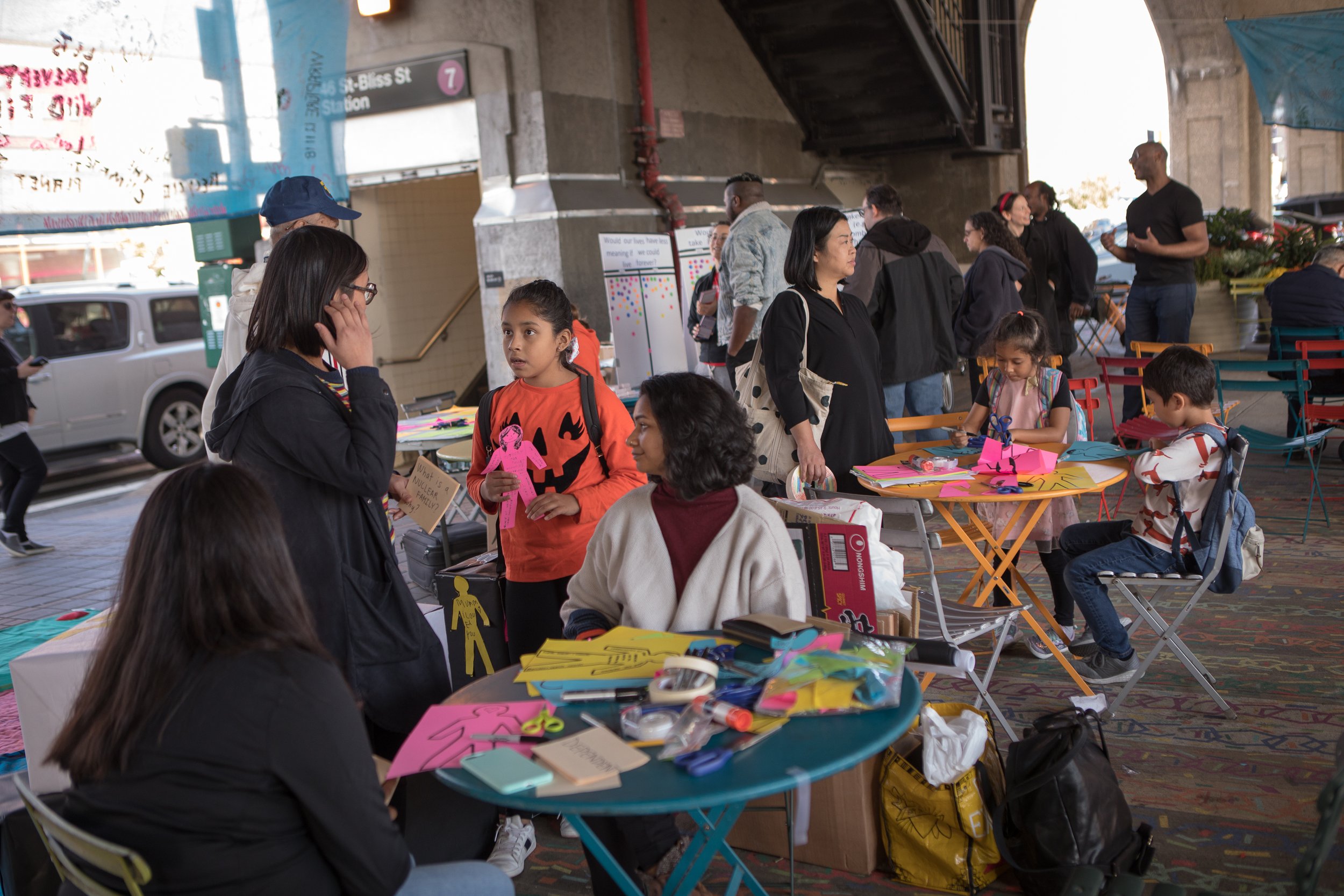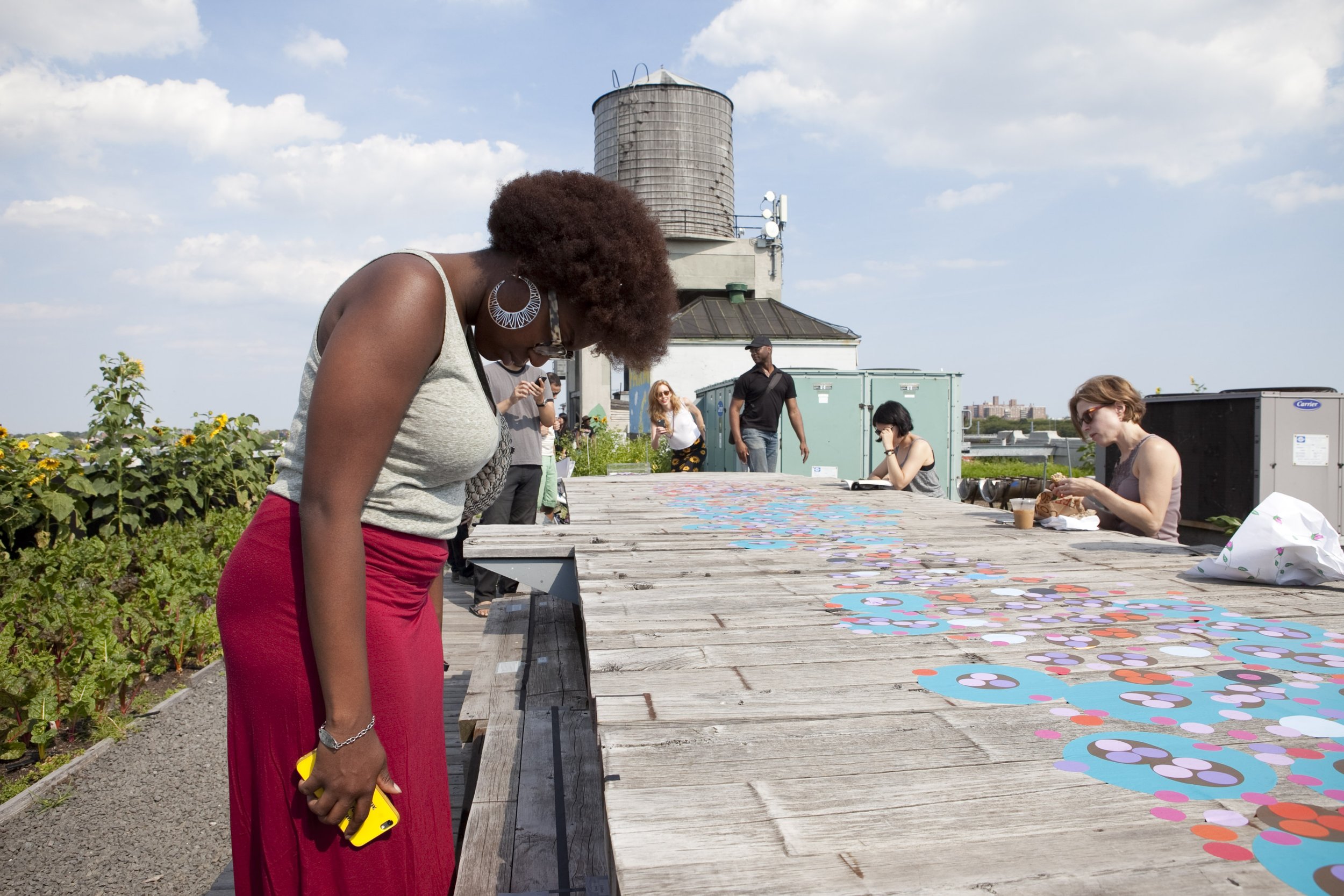
RE- WORKS
Image: 2 Minutes to Midnight lab, Bliss Plaza, Sunnyside, Queens, 2019. Created by Anjali Deshmukh & Ernest Verrett. Ft. multiple artists listed here. Photo by Neha Gautam.
Re-works are a project of The Arisen. We’re studying and blueprinting models in our cultural asset ecosystem that serve justice so anyone could use them, across industries — like fine art, music, literature — and roles, like artists, curators, & investors.

WHY
Image: Bending the Universe, Brooklyn Grange, Queens, NY, 2015. By Anjali Deshmukh. Photo by Chasi Annexy.
We deeply love art. But the systems and infrastructures of art — like the museums, galleries, entertainment companies, and music labels — are steeped in injustice. People with wealth+power play a wildly outsized role in pricing, curating, and shaping the nature of cultural assets in their favor and worldview. They design what is made, which artists get supported, stifled, & erased, and which assets are perceived as valuable & devalued.
By a thousand cuts, the systems of cultural production feed big inequities, from racial wealth gaps, to what we collectively remember, to the cultural norms that we all adopt. Many of these injustices have roots in colonialism.
MJN is researching how cultural “value” is created and grows, from the process of making, to the journey of a cultural asset as it changes hands and takes on a life of its own. By looking at existing alternatives, we can design or blueprint counteracting interventions, as MJN collective and as a broader community of those seeking to manifest justice.
DRAFT PRINCIPLES
(We are grateful for your feedback!)
-
We think creators should design their pathways, and get exposure to finance and investing without exclusionary jargon.
-
We create paths for collective imagination, problem solving, joy, and healing. Social Practice is an art discipline that aims to create social and/or political change through collaboration with individuals, communities, and institutions, often in the creation of participatory art, and focuses on interaction between participants, social systems, & the artist or artwork. People in relationship are aesthetics in themselves — not only part of a work’s creation.
-
We hope to learn about the mechanics of business and operational models that serve justice, across sectors, structures, and sizes.
-
Centering justice, loving care, solidarity, and the values identified through listening.
2024-2025 Goals
LEARN
-
Learn from the creators of existing solutions, such as artist led museums, designer and publisher co-ops, artist-led investing funds and artist-led real estate projects.
-
Be in community with artists seeking solutions.
BLUEPRINT
-
Develop blueprints to open-source models that are working and serve justice.
-
The Arisen is simultaneously creating and blueprinting a model of our own, Street Works, and exploring how we can be additive where models don't yet exist.


